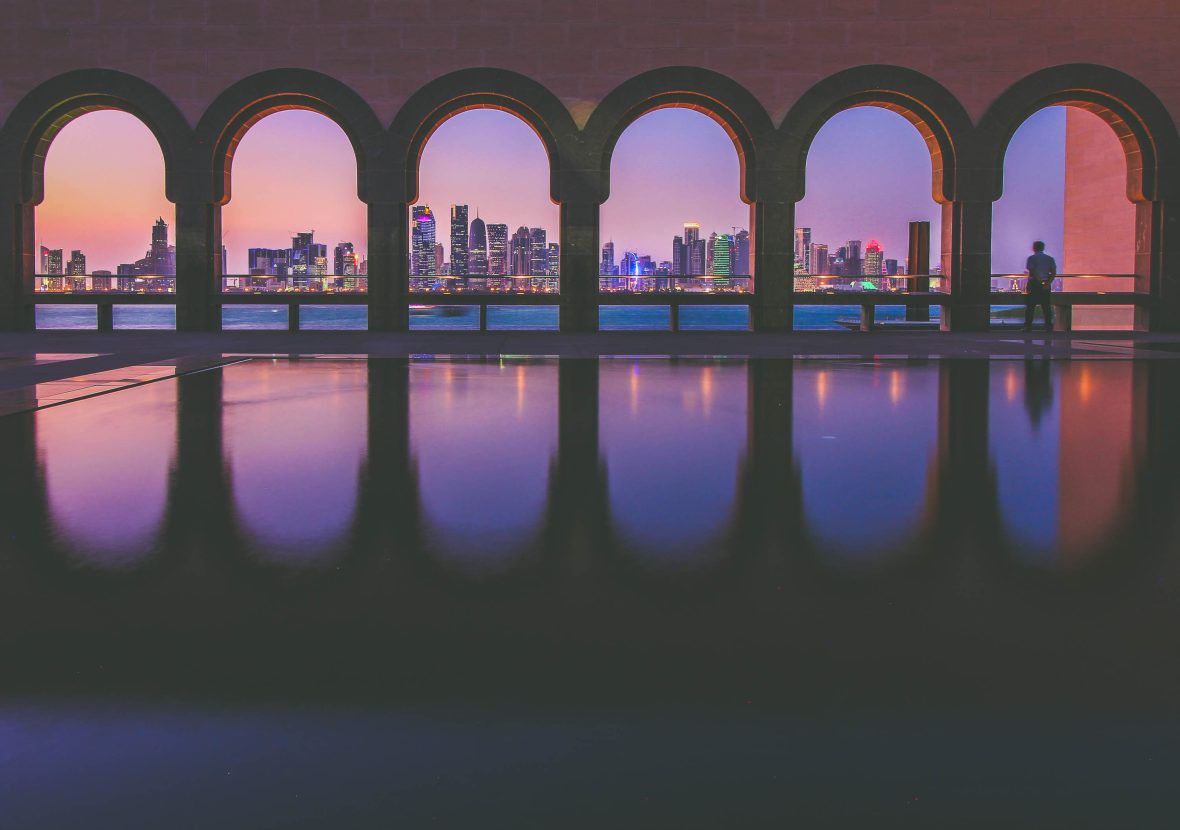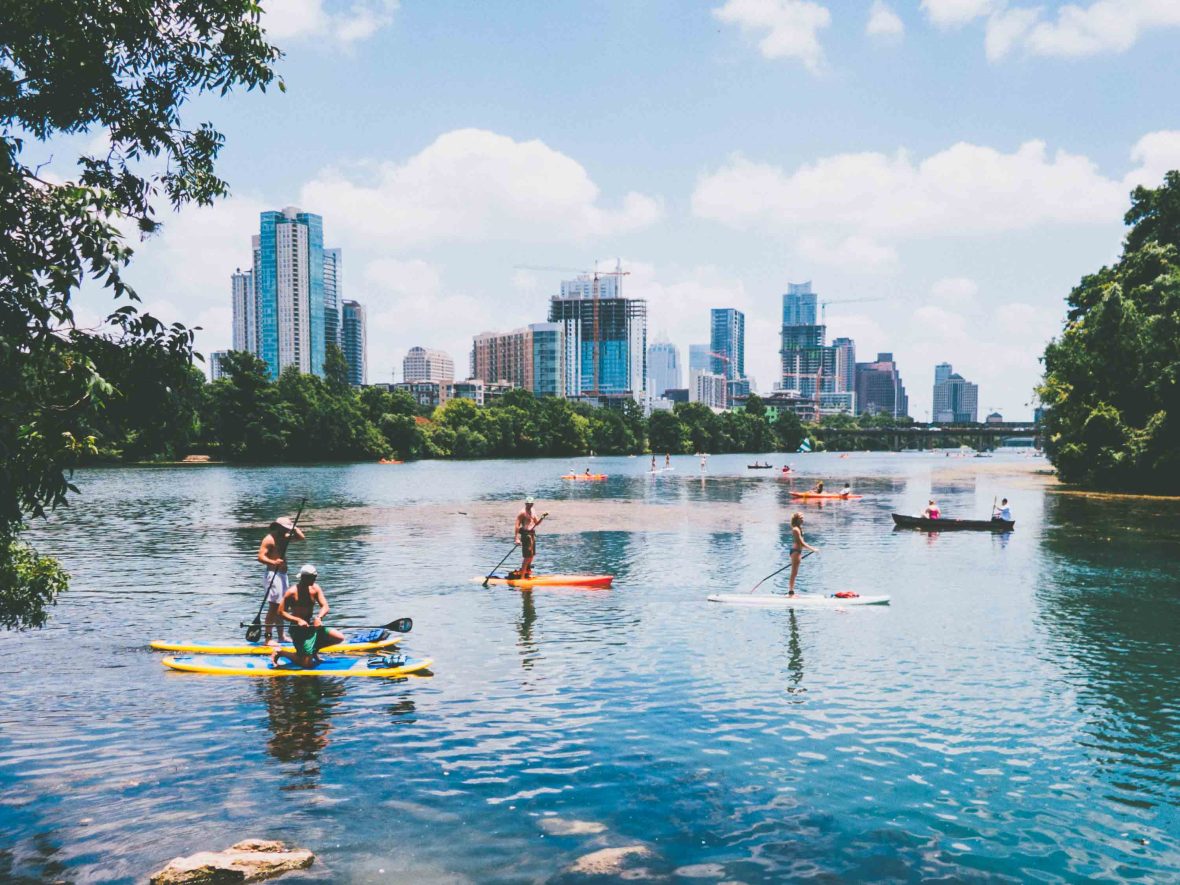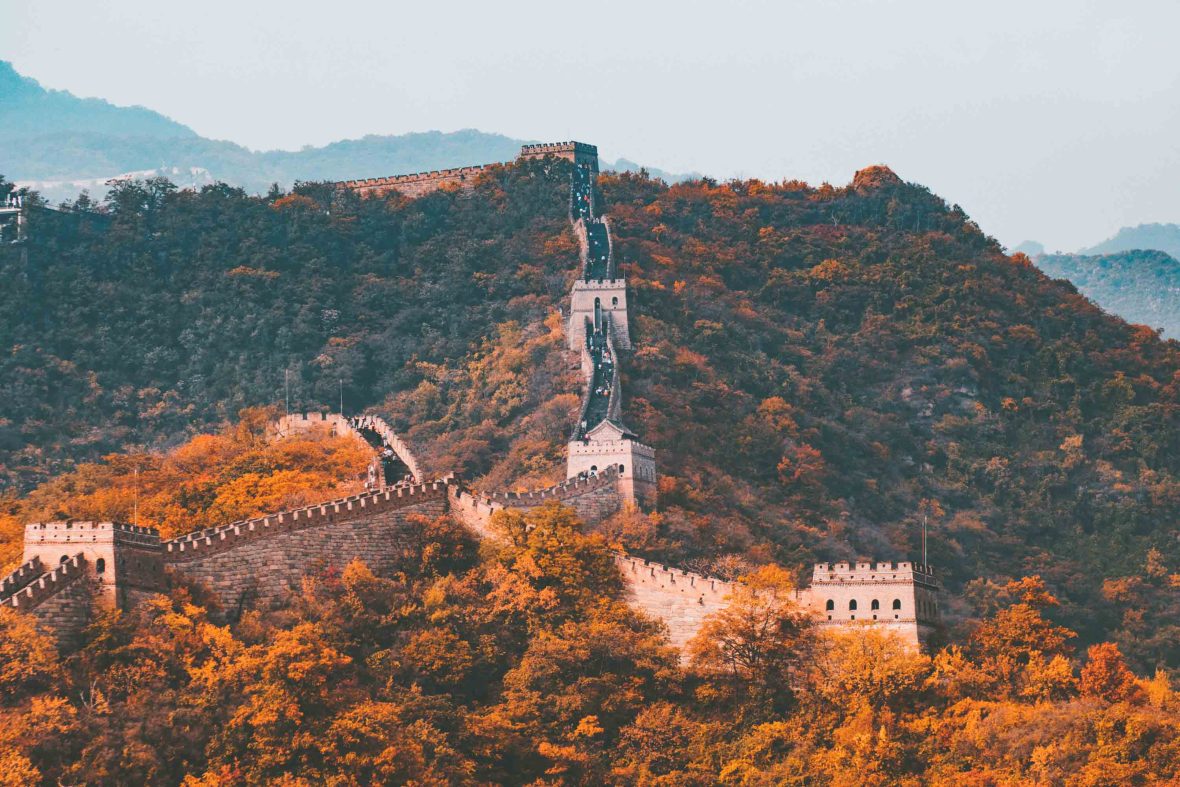
You might not realize it, but choosing travel destinations can be a political act. Writer Tara Wells explores why the action of travel boycotts may not bring the change we intend.


You might not realize it, but choosing travel destinations can be a political act. Writer Tara Wells explores why the action of travel boycotts may not bring the change we intend.
My passionately-Welsh mate travels internationally to support his country’s sporting teams. After 64 long years, Wales has made it through to the World Cup. For a football fan like him, it’s likely a once-in-a-lifetime event. But this year’s World Cup is in Qatar. Questions hang over bribery during the bid process and why more than 6,500 immigrant workers have died during stadium construction. My Welsh friend, though, is concerned about something else.
As a heterosexual, Qatar welcomes his presence and tourism spending, but his LGBQT+ mates could, technically, be thrown in jail for three years for any public displays of affection. As he said, if the tournament was held in a repressive regime like apartheid South Africa, would he have gone? No. So what makes it okay to go to Qatar?
His problem, I suppose, not mine… right? Except that I’m thinking of flying Air Qatar—an airline half-owned by the State of Qatar—to travel to Texas in the US. What I’m consumed with is the overturning of 1973’s Roe v. Wade decision, making Texas one of more than a dozen ‘trigger states’ to eliminate abortion access, even in the instances of rape or incest (although 80 percent of voters in Texas agree there should be exceptions for rape and incest). This is the same state where another sickening mass shooting of school children took place in Uvalde. Texas is a state with some of the least restrictive gun laws, in a country already divided by gun control laws.
Thus, some travel writing peers are calling for travel boycotts in countries with human rights issues and violations that strike a certain chord for them personally. In most cases I’ve witnessed, it is abortion laws that are creating this call, but gun violence has not spurred the same response. Some are telling PR companies and publishers that they cannot promote travel to any destination with such restrictive laws. It is a human rights issue, they argue, one we must take a stand on even if we don’t live within the affected constituency. They are hoping that what is within their power—to sway the public’s desire to choose one destination over another—will help create change, or at least not appear to condone laws they find reprehensible. I’ve contemplated this, too. But boycotting travel destinations is not the way.

In a consumer economy, our ultimate power is where we direct our money. So at first glance, it would seem correct that withholding tourism expenditure is a powerful act; that things could change if only we spent our money elsewhere. But this is not like refusing to pay to gawk at sun bears in tiny cages or ride mistreated elephants. When tourists—individually and collectively—go elsewhere, they remove the market opportunity. It is likely to be a faster and more final end to exploitation than waiting for a jurisdiction to introduce or enforce animal protection laws. That is the power of the discerning tourism dollar. This type of boycott more directly affects the people—tour operators, attraction owners—who have ‘done the wrong thing’.
Travel boycotts based on human rights, environmental or legal concerns are trickier.
A traveler’s decision to choose Destination A and forgo Destination B provides no directive to governments nor lawmakers that a choice has even been made, nor what it was based on. There’s a high chance that lawmakers would remain unconcerned about the opinions of outsiders: We are not who they answer to.
My power as an individual is multiplied because I write about destinations and can withhold positive press. But that means nothing if a publication simply gets someone else to cover the same destination. Any boycott would need to come from the publication level rather than from (freelance) journalists. But does a publication refusing coverage affect change within the destination in question? Where is the connection between a publisher turning down freelancers’ pitches, and the lawmakers of a country or region being aware that they have not received positive press as a direct result of their laws?

We must follow the money to see who is most affected by a lack of tourism. Forget about a nation’s GDP, or a state’s primary export: The last two years of natural disasters, lockdowns and border closures have shown that small businesses and local communities suffer the most. In Australia, almost half of tourism businesses are a one-person band: The owner with no other employees. Another third of Aussie tourism businesses employ fewer than four people. It’s a similar story world-over. The World Travel & Tourism Council reports that 80 percent of travel and tourism businesses globally are Small and Medium Sized Enterprises (SMEs).
And the lowest-paid jobs tend to revolve in and around tourism: Accommodation, retail, food services and recreation. These jobs are also more likely to be temporary, possibly seasonal, and more likely to be filled by women. For example, in 2021 the US Bureau of Labor Statistics reported that nearly 9 out of ten housekeepers were women with more than two-thirds being people of color.
If we believe a country’s laws are so against our beliefs that we simply cannot, in all good conscience, go there, then those judgments should not be applied arbitrarily.
So who does a tourism boycott most affect? The lowest paid, most vulnerable workers, more often women, migrants and people of color.
Still, in the USA, those most affected by restrictive abortion laws are women from low socio-economic backgrounds who cannot afford to travel across state borders (the Guttmacher Institute found that 75 percent of abortion patients in 2014 were low-income; nearly half living at less than the federal poverty level). It’s not a stretch to say that workers in and adjacent to the tourism industry are also the most likely to be harmed by both restrictive abortion legislation and travel boycotts.

So where’s the line? If we believe a country’s laws are so against our beliefs that we simply cannot, in all good conscience, go there, then those judgments should not be applied arbitrarily. We cannot boycott the United States for abortion laws, yet visit the Egyptian pyramids. We cannot shame minor celebrities for visiting Saudia Arabia, a country with the death penalty, yet celebrate walking the Great Wall of China. If the perceived problem is that certain freedoms have recently been wound back—rather than always being unjust—then LGBTQ+ people may recommend against plunging into Budapest’s thermal baths due to Hungary’s repealing of transgender rights.
If we as individuals refuse to travel to—or I, as a travel writer, refuse to write about—places that have a troubling human rights record, poor environmental credentials and problematic gender, sexuality, race and disability equality, then there’s nowhere left to go. Not even home. (Seriously. Check your own country’s human rights standing, according to Amnesty International.) As long as there are people, there is complicated, still-in-the-making history.
Considering travel boycotts prompts us to consider travel more deeply. And while the immediate answer may be that boycotts are an overly simplistic and ineffective act of resistance, the worthy prompt remains: What constitutes ethical travel?
Travel holds the power to transform us into global citizens, to break down ‘us versus them’ mentalities, to create more understanding and less divisiveness. Restrictive laws and inequality rely on those things existing. We must believe and act as if travel can advance the conversation, and eventually, make the world a better place.




Can't find what you're looking for? Try using these tags: